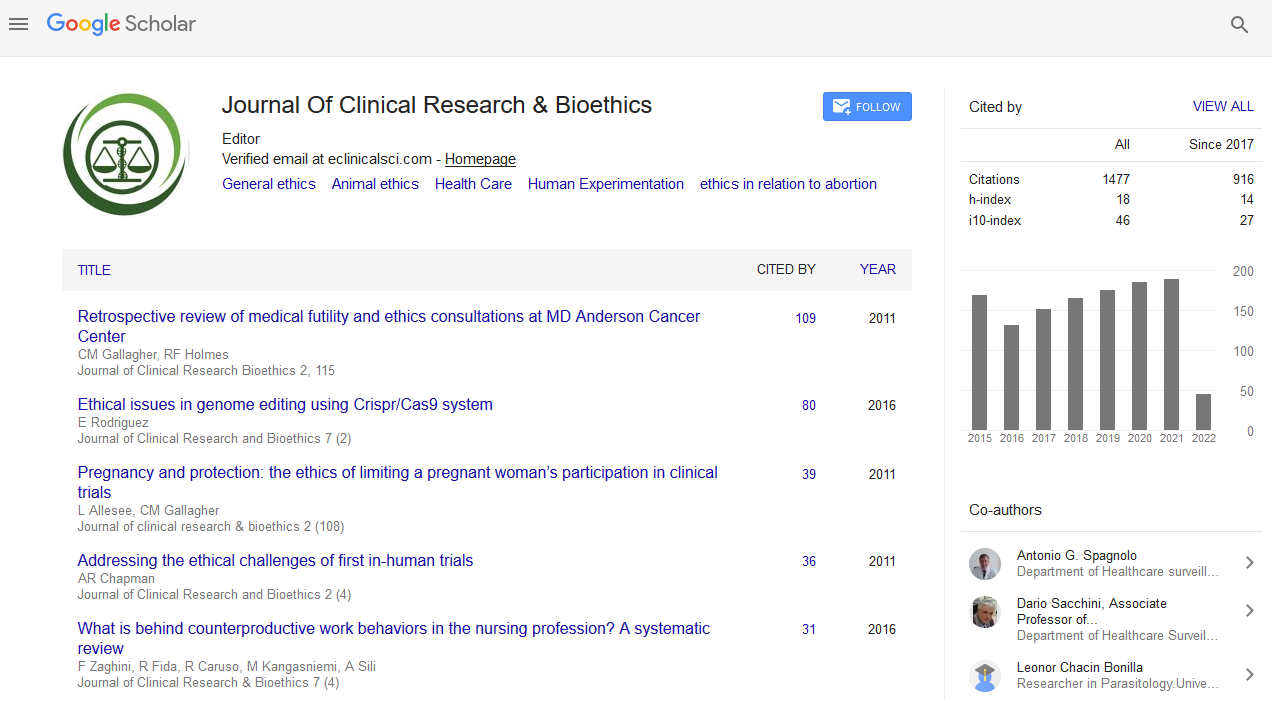PMC/PubMed Indexed Articles
Indexed In
- Open J Gate
- Genamics JournalSeek
- JournalTOCs
- RefSeek
- Hamdard University
- EBSCO A-Z
- OCLC- WorldCat
- Publons
- Geneva Foundation for Medical Education and Research
- Google Scholar
Useful Links
Share This Page
Journal Flyer

Open Access Journals
- Agri and Aquaculture
- Biochemistry
- Bioinformatics & Systems Biology
- Business & Management
- Chemistry
- Clinical Sciences
- Engineering
- Food & Nutrition
- General Science
- Genetics & Molecular Biology
- Immunology & Microbiology
- Medical Sciences
- Neuroscience & Psychology
- Nursing & Health Care
- Pharmaceutical Sciences
Use of animals in biomedical research
3rd International Conference on Advanced Clinical Research and Clinical Trials
September 20-21, 2017 Dublin, Ireland
Narendra Babu Ankem
Chalapathi Institute of Pharmaceutical Sciences, India
Posters & Accepted Abstracts: J Clin Res Bioeth
Abstract:
Animal species are used in every stage of the research and development effort from discovery, to development and safety testing, to clinical trials, and to manufacture because their biological systems, genetic structures, and immunological responses, in various ways, closely mirror ours as a species. Galen (129-200 AD), used animals to demonstrate that arteries contained blood and not air. Since then specially bred laboratory animals like mice, rats, hamsters, guinea pigs, rabbits, cats, dogs, monkeys and a variety of birds and other lower forms are now integral part of biomedical research. Research involving animals will contribute significantly to present and future knowledge for protection and improvement of the health and welfare of either humans or animals. New drug research meant for assuring the quality and efficacy of pharmaceutical products/ vaccines/ biological are based on experiments involving animals. Toxicological studies performed in rodents and dogs are the essential link between the pre-clinical and clinical development of the drug molecule. No new drug can be introduced in clinical practice or even for the clinical research unless it passes the toxicity tests in animals.


